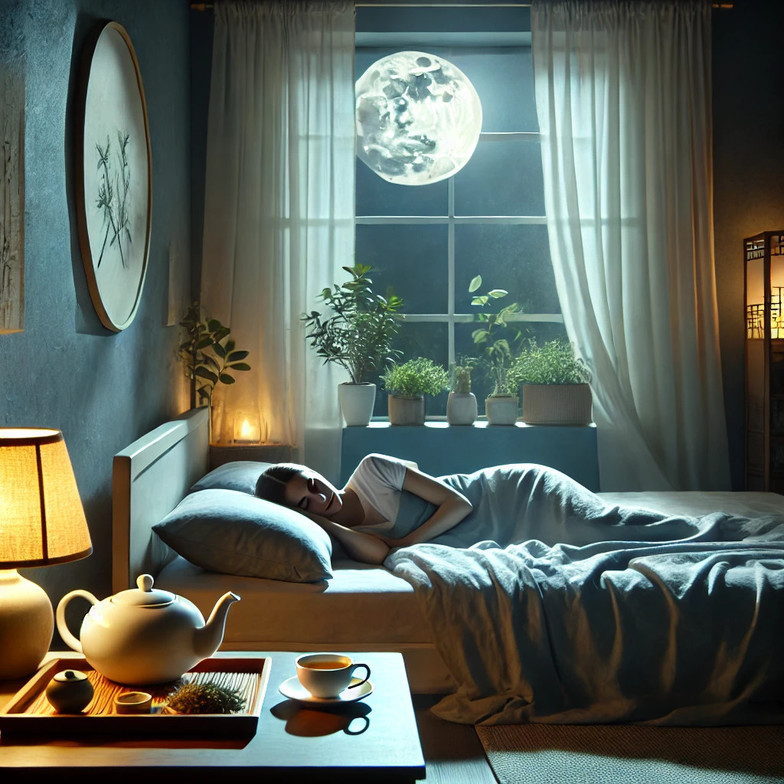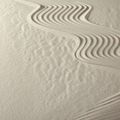
The Healing Power of Acupuncture and Traditional Chinese Medicine for Better Sleep
In today’s fast-paced world, sleep disturbances have become increasingly common. Many people struggle with insomnia, restless nights, or poor sleep quality, affecting their overall health and well-being. While there are numerous approaches to tackling sleep issues, acupuncture and Traditional Chinese Medicine (TCM) offer holistic and effective solutions that have been practiced for centuries.
Understanding Sleep from a TCM Perspective
Traditional Chinese Medicine views sleep as a critical component of overall health. According to TCM, good sleep is the result of balanced Qi (energy) and the harmonious functioning of the body’s organ systems. Disruptions in sleep are often seen as imbalances in the body, which can stem from various factors such as stress, diet, lifestyle, and emotional health.
In TCM, the heart, liver, and spleen play significant roles in sleep regulation:
Heart: The heart houses the Shen (spirit). An unsettled Shen can lead to insomnia and restless sleep.
Liver: The liver is responsible for the smooth flow of Qi and blood. Stagnation in the liver can cause irritability and difficulty falling asleep.
Spleen: The spleen governs digestion and the production of Qi. A weak spleen can lead to worry and overthinking, which disrupts sleep.
How Acupuncture Improves Sleep
Acupuncture, a key component of TCM, involves the insertion of fine needles into specific points on the body to stimulate and balance the flow of Qi. Here’s how acupuncture can enhance sleep:
Regulating the Nervous System: Acupuncture promotes relaxation and reduces stress by regulating the autonomic nervous system. This helps in lowering cortisol levels, the body’s stress hormone, and increases the production of endorphins, which are natural painkillers and mood enhancers.
Balancing Hormones: Acupuncture can help regulate the production of melatonin, the hormone responsible for sleep-wake cycles. By balancing hormones, acupuncture aids in establishing a regular sleep pattern.
Enhancing Blood Flow: Improved blood circulation from acupuncture ensures that the body’s tissues and organs are well-nourished, which is essential for restorative sleep.
Addressing Underlying Conditions: Acupuncture can treat various underlying conditions that may contribute to sleep disturbances, such as anxiety, depression, digestive issues, and chronic pain.
Herbal Remedies in TCM for Sleep
It is important to note that Traditional Chinese Herbal Medicine is quite a complex field. Each herbal formula is tailored for a specific type of sleep problem. Therefore, when considering taking a formula, it is advisable to consult an expert. This ensures that you receive the most appropriate and effective treatment for your particular condition.
In addition to acupuncture, TCM includes herbal medicine as a vital approach to improving sleep. Some commonly used herbs for sleep issues include:
Suan Zao Ren (Ziziphus Jujuba): Known for calming the mind and nourishing the heart, it is often used to treat insomnia and irritability.
Bai Zi Ren (Platycladus Orientalis): Helps to nourish the heart and calm the spirit, making it effective for treating sleep disorders and anxiety.
Long Gu (Fossilized Mammal Bones): Used to calm the spirit and anchor the Shen, it is beneficial for individuals experiencing severe restlessness and insomnia.
Lifestyle and Dietary Recommendations
TCM also emphasizes the importance of lifestyle and dietary habits in maintaining good sleep. Here are some tips:
Mindful Eating: Avoid heavy meals, caffeine, and alcohol close to bedtime. Incorporate foods that promote calmness, such as warm milk, bananas, and nuts.
Stress Management: Engage in relaxation techniques such as meditation, deep breathing exercises, and Tai Chi to reduce stress and promote relaxation.
Consistent Sleep Routine: Maintain a regular sleep schedule by going to bed and waking up at the same time every day.
Create a Sleep-Conducive Environment: Ensure your bedroom is cool, dark, and quiet. Invest in a comfortable mattress and pillows.
Conclusion
Acupuncture and Traditional Chinese Medicine offer a comprehensive approach to improving sleep quality by addressing the root causes of sleep disturbances. By balancing Qi, regulating the nervous system, and incorporating herbal remedies, TCM provides a natural and holistic solution for achieving restful and rejuvenating sleep. If you are struggling with sleep issues, consider exploring the benefits of acupuncture and TCM to restore harmony and balance in your life.

Tanya Kelloway
Contact Me



